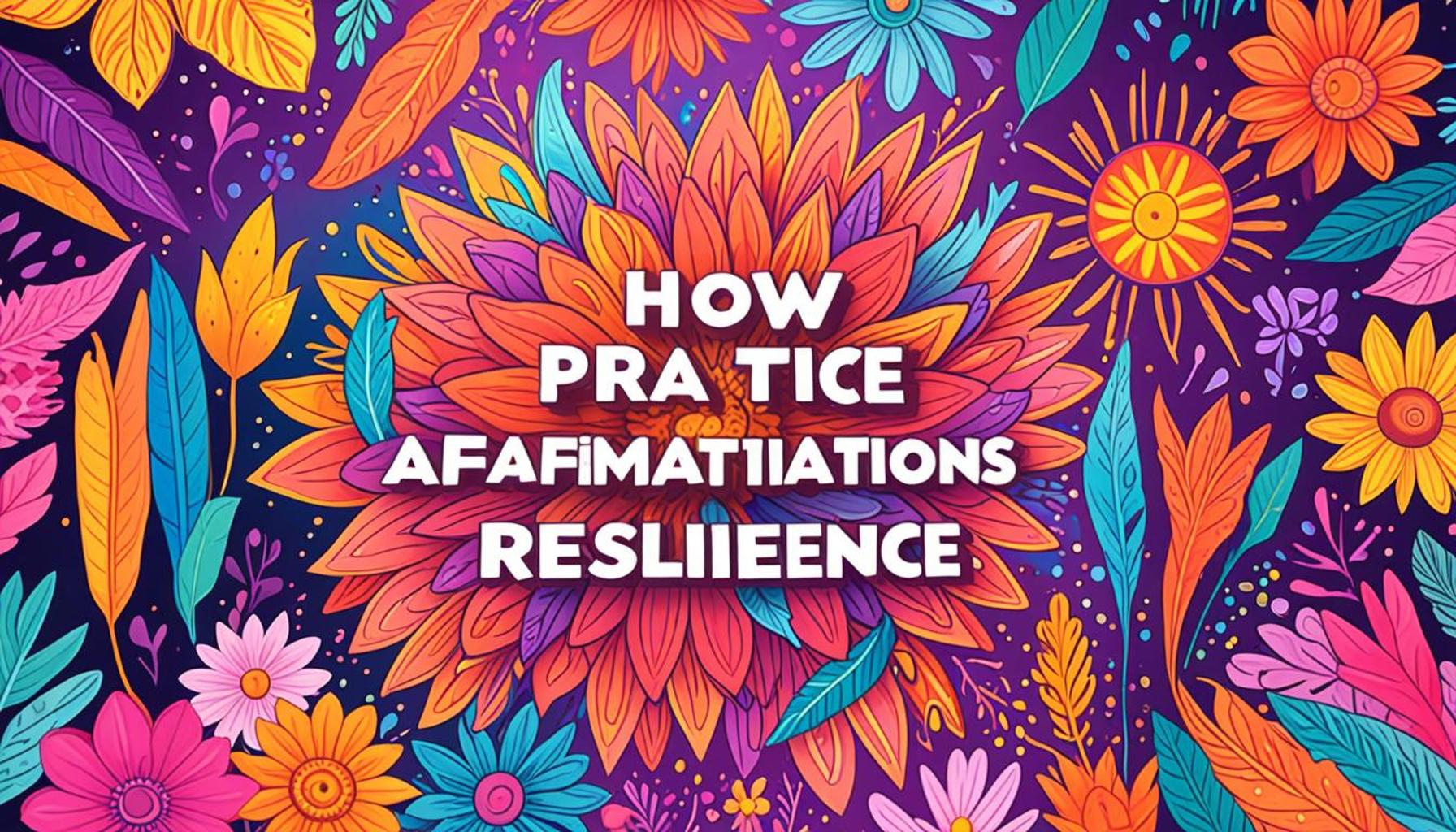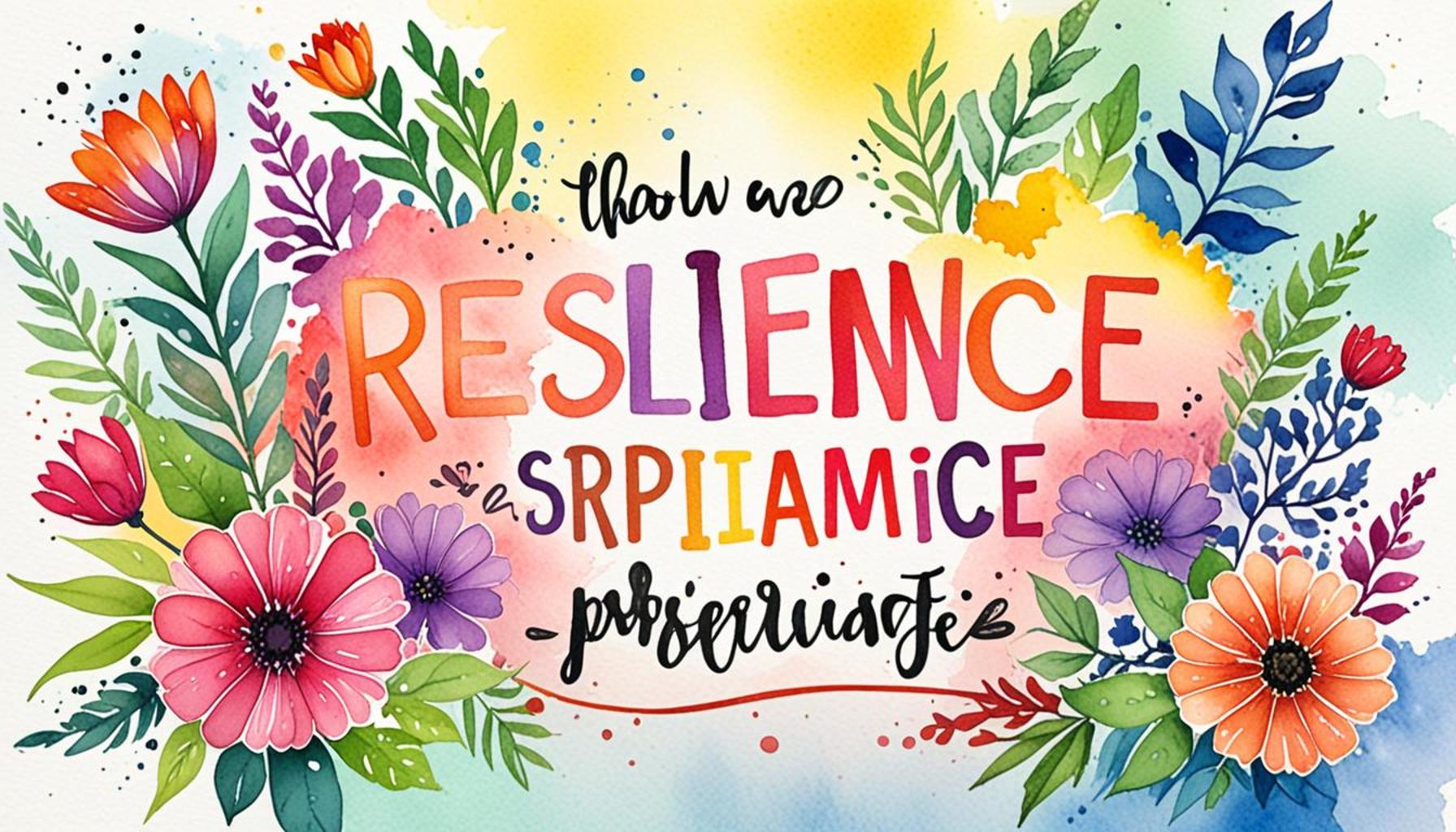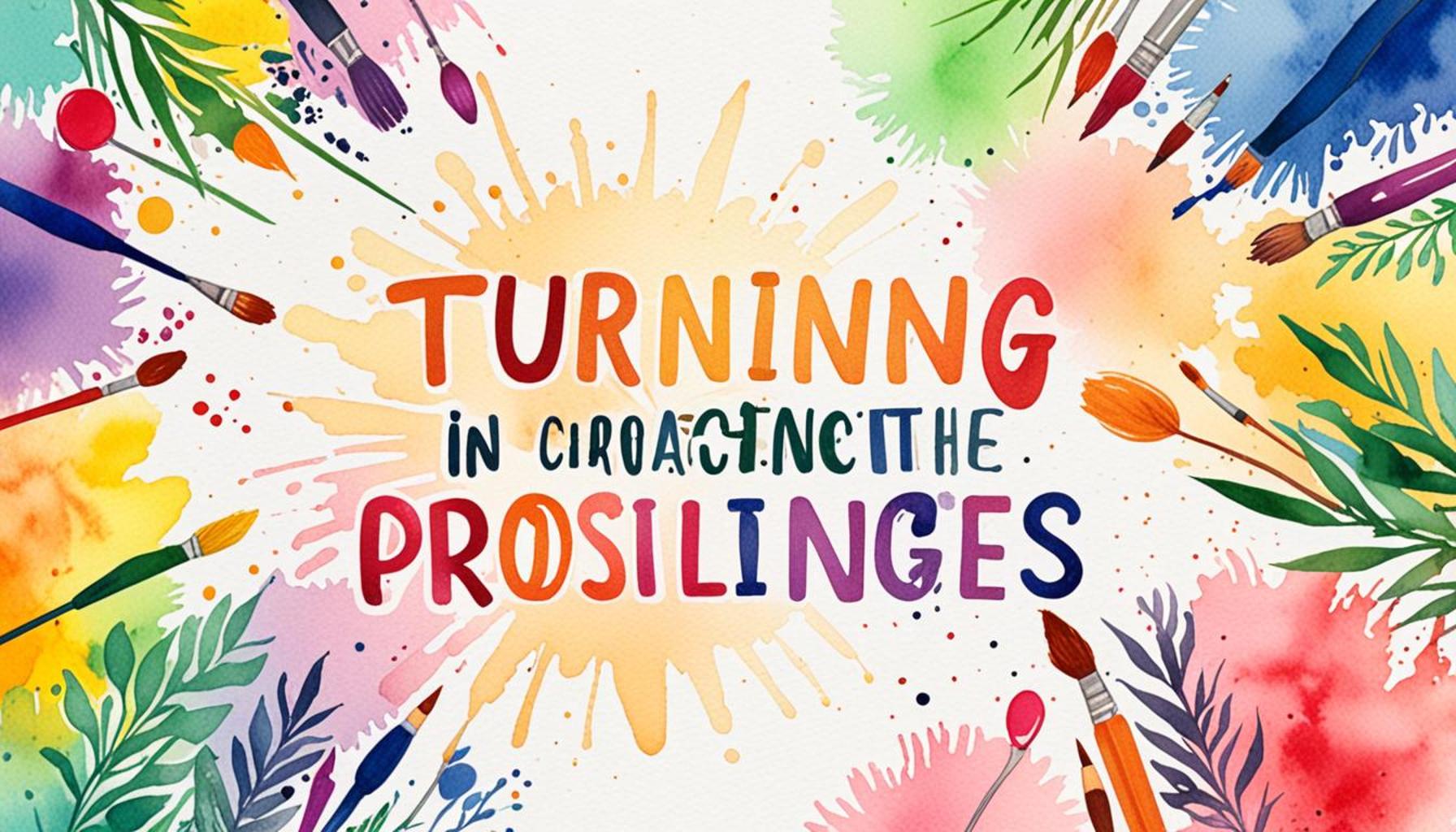How Affirmation Practice Helps with Emotional Recovery and Strengthens Resilience

Understanding the Power of Affirmations
In a world filled with challenges and uncertainties, the tools we use to navigate our emotions can significantly impact our well-being. Affirmation practice has emerged as a powerful technique that not only aids in emotional recovery but also builds resilience among individuals facing adversity. This practice involves the repetition of positive statements that can influence the subconscious mind, reshaping how we perceive ourselves and our circumstances.
One might wonder how a simple phrase can evoke such powerful changes. The science behind affirmations lies in the brain’s neuroplasticity, which allows it to reorganize and form new connections. By consistently repeating affirmations, you can essentially rewire your brain to foster a more positive self-image and outlook on life.
In Nigeria, where many face socio-economic challenges that test their resilience and adaptability daily, embracing positive affirmations can significantly alter one’s mental landscape. For many individuals, adopting this practice leads to a profound shift away from negativity. It creates a space where individuals can aspire to greater heights, making each day an opportunity for growth.
The transformative benefits of affirmations are numerous. Consider the following key areas where individuals often experience positive changes:
- Increased self-esteem: Regularly affirming one’s worth can boost confidence, empowering individuals to pursue their dreams despite obstacles. For instance, a student preparing for examinations may repeat affirmations like “I am capable of achieving excellence” to quell self-doubt.
- Enhanced emotional stability: Affirmations can serve as a buffer against life’s stressors. By affirming your ability to manage emotions, you can foster a more balanced attitude in the face of adversity, such as during economic fluctuations or personal crises.
- Coping strategies: When facing significant life challenges, such as loss or financial hardship, affirmations can provide vital tools to navigate through stress effectively. For example, a small business owner might declare, “Every challenge is an opportunity for growth” to maintain a proactive approach amid uncertainty.
Research substantiates that individuals who incorporate affirmation practices into their daily routines experience:

- Improved mental health: A commitment to affirmations has been linked to a decrease in symptoms of depression and anxiety, paving the way for a more fulfilling life.
- Stronger relationships: Positive affirmations foster communication and enhance empathy, vital components for nurturing meaningful connections with others.
- Greater adaptability: In a rapidly changing world, the ability to cope with unexpected shifts can mean the difference between stagnation and growth. Affirmations can cultivate flexibility in adapting to new situations with ease.
As we delve deeper into the compelling practices of affirmation, you’ll discover how these simple yet impactful techniques can pave the way for emotional healing and strengthen your resilience against life’s hurdles. Whether you’re navigating the nuanced challenges of urban life in Lagos or rural settings, integrating affirmations into your daily life is a worthy investment in your mental and emotional well-being.
CHECK OUT: Click here to explore more
The Science Behind Affirmations and Emotional Recovery
Understanding how affirmation practice influences emotional recovery requires delving into psychological principles and neuroscience. At its core, affirmations can be perceived as cognitive exercises that help reprogram our thoughts and beliefs. When these positive statements are regularly practiced, they can lead to substantial changes in one’s mental well-being and overall resilience.
The brain operates on a system of neural pathways influenced by our daily thoughts and experiences. Repeatedly embracing positive affirmations creates new, healthier pathways while diminishing the hold of negative thoughts. This process is known as neuroplasticity, and it is fundamental in understanding how affirmations can facilitate emotional recovery. With consistent practice, individuals can learn to focus on their strengths rather than weaknesses, gradually leading to improved emotional health.
In the context of Nigeria, where economic and social challenges can be particularly daunting, the relevance of affirmation practice becomes even more significant. Having the ability to affirm one’s strength and potential helps to mitigate the psychological impact of daily stressors. People who engage in affirmative self-talk often find a renewed sense of hope and motivation, empowering them to tackle life’s obstacles head-on.
Moreover, it’s essential to identify the areas where affirmations can be most effective in promoting emotional recovery. These areas include:
- Overcoming negative self-talk: Individuals battling self-criticism can utilize affirmations to combat feelings of inadequacy. Statements like “I am worthy of love and respect” can help them reclaim their self-worth.
- Reducing anxiety and stress: For many, anxiety can be crippling. By practicing affirmations like “I am calm and in control,” people can foster a more composed state of mind, which is essential for emotional recovery.
- Paving the way for self-acceptance: Affirmation practices encourage individuals to embrace their true selves. Statements such as “I am enough just as I am” allow for self-acceptance, leading to a more profound emotional connection with oneself.
The impact of affirmations on emotional health extends beyond individual practices; it can also enhance community dynamics. When individuals uplift themselves through positive affirmations, the ripple effects can foster more supportive and empathetic relationships within families, workplaces, and social networks. This interdependence illustrates that emotional resilience is not just a personal endeavor but also a collective journey.
As we explore further, it becomes clear that integrating affirmation practices into daily life is an accessible yet powerful tool for emotional recovery. From the bustling streets of Lagos to serene rural communities, the practice of affirmations holds the potential to transform challenges into opportunities for growth, paving the way for a happier, more resilient future.
Understanding Affirmation Practice
Affirmation practice is a powerful tool that involves repeating positive statements, aimed at challenging and overcoming negative thoughts. This technique can be particularly beneficial for those undergoing emotional recovery. By integrating affirmations into daily routines, individuals can begin to reshape their beliefs and foster a more resilient mindset. Engaging in this practice not only enhances one’s sense of self-worth but also acts as a coping mechanism during challenging times.
How Affirmations Foster Emotional Recovery
The journey of emotional recovery often involves confronting painful experiences and emotions. Affirmations create a safe space for individuals to explore their feelings while simultaneously reinforcing a positive outlook. Research suggests that regularly using affirmations can activate brain regions associated with self-related processing, enhancing emotional resilience and promoting psychological well-being. This mental shift helps in reducing anxiety and fostering a sense of inner strength.
The Science Behind Resilience
Building resilience is fundamental in navigating life’s ups and downs. Affirmations contribute to this process by encouraging a growth mindset. When individuals focus on positive affirmations, they are more likely to embrace challenges and view setbacks as opportunities for growth. This adaptive coping strategy is essential, especially in the wake of trauma or emotional distress.
The Circle of Impact
Moreover, affirmation practice impacts interpersonal relationships. By promoting self-love and acceptance, individuals are often more open and compassionate towards others. This enhances relational resilience, creating stronger support systems that can help in times of need. In a world where mental health challenges are on the rise, utilizing affirmations can serve as a beacon of hope in restoring emotional balance.
| Category 1 | Category 2 |
|---|---|
| Emotional Healing | Affirmations promote emotional awareness and healing. |
| Inner Strength | Fosters resilience by reinforcing positive self-beliefs. |
By focusing on these aspects, the practice of affirmations can significantly enhance emotional recovery and contribute to building a resilient mindset, steering individuals towards a brighter and more fulfilling future.
RECOMMENDED: Check out this similar article
A Journey to Building Emotional Resilience Through Affirmations
The role of affirmations in healing emotional wounds cannot be overstated. In many regions of Nigeria, societal pressures and economic hurdles can take a toll on mental health, making it crucial for individuals to seek avenues for emotional recovery. The practice of utilizing affirmations transcends mere self-help; it is a profound journey towards bolstering one’s resilience.
One significant area where affirmation practice can make a difference is in enhancing emotional intelligence. Emotional intelligence refers to the ability to identify, understand, and manage one’s emotions and the emotions of others. Engaging in affirmations such as “I can control my emotions and choose to respond positively” facilitates greater self-awareness and empathy. This is particularly relevant in Nigeria’s culturally rich and diverse society, where social harmony is essential. By fostering emotional intelligence through affirmations, individuals can navigate interpersonal relationships more effectively, reducing conflicts and misunderstandings.
A notable application of affirmation techniques is in the context of mental health challenges such as depression and PTSD (Post-Traumatic Stress Disorder). For individuals processing traumatic events, affirmations provide a means to cultivate self-compassion. Phrases like “I am healing, and each day is a step towards my well-being” can help shift the focus from pain to progress. This shift is invaluable, especially in communities where mental health issues are still stigmatized and often go unaddressed. Evidence-based practices utilizing affirmations can mitigate feelings of isolation and despair, promoting a sense of belonging and support within groups.
Moreover, affirmations can serve as powerful motivators in the face of adversity. In challenging settings—be it in urban environments like Lagos or rural communities where economic instability prevails—individuals often encounter obstacles that threaten their aspirations. Affirmative statements such as “I have the strength to overcome challenges” act as reminders of personal capabilities, fueling ambition and grit. This inner resilience holds great potential for instilling hope and empowering individuals to pursue changes in their lives, potentially leading to improved economic conditions through entrepreneurship or education.
Additionally, the practice of affirmations can significantly augment self-discipline, with implications across various life areas, including career and education. Students and professionals grappling with the pressure to perform can benefit from encouraging phrases like “I am committed to my goals and will strive to achieve them.” Research suggests that self-discipline is a critical factor in success, and affirmations remind individuals of their commitment, thereby enhancing their perseverance even when faced with setbacks.
Furthermore, community initiatives that integrate affirmation practices can foment collective resilience. Neighborhood programs focused on mental wellness can leverage group affirmations, fostering a sense of unity and shared purpose among participants. Initiatives aimed at youth, such as workshops on self-esteem and positive self-talk, can change narratives around mental health, equipping the next generation with tools to combat adversity effectively.
As we deepen our understanding of how affirmation practices can be woven into the fabric of daily life, it becomes evident that the journey of emotional recovery and resilience is one that benefits not only the individual but also the broader community. The deliberate repeat of empowering statements can pave the way for transformative healing experiences that encourage personal growth, emotional strength, and shared community resilience.
SEE ALSO: Click here to read another article
Embracing Affirmations for Lasting Emotional Wellness
In summary, the practice of affirmations is a vital tool in fostering emotional recovery and cultivating resilience among individuals, particularly in a diverse and dynamic country like Nigeria. As we explore the intersections of affirmations with mental health, emotional intelligence, and community support, it becomes clear that these positive statements serve not only as personal mantras but also as catalysts for broader societal change. The strengthening of emotional intelligence through affirmations promotes healthier interpersonal relationships, paving the way for less conflict and enhanced social harmony.
Moreover, by addressing mental health challenges such as depression and PTSD, affirmations encourage a shift from despair to self-compassion. This is especially vital in environments where stigmatization of mental health issues prevails. By fostering group affirmation initiatives, communities can come together, creating safe spaces that enhance collective resilience and support emotional wellness.
Furthermore, it is essential to recognize that affirmations empower individuals to harness their inner strength during times of adversity. As many Nigerians strive for improved prospects, these positive affirmations can act as motivation, inspiring personal and professional growth. Whether in education, career, or entrepreneurship, affirmations remind individuals of their capabilities and commitments, ultimately enhancing their chances of success.
In conclusion, the integration of affirmation practices into everyday life can yield transformative benefits—not just for individuals, but for entire communities. As we encourage the adoption of affirmations, we embolden a culture of resilience, healing, and hope, guiding us all towards a brighter future.


